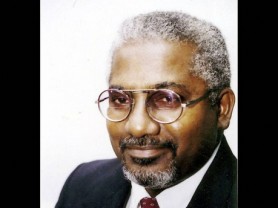By Wilberne Persaud
Financial Gleaner Columnist
(Jamaica Gleaner) In Georgetown, Guyana, I take a moment to contemplate what I have seen and experienced these last few days.
Notions of Guyana on the way to failed statehood, popular among a select group of perhaps insufficiently informed critics, seem entirely misplaced.
Problems do exist; the country has its fair share. They range from a public ground-transportation system reminiscent of Jamaica’s in the 1980s to electricity generation insufficien-cies and, of course, the gamut of fiscal and monetary problems occasioned by the great recession and our local CLICO meltdown.
Big public buses no longer exist. Minibuses – called maxi taxis in Trinidad and Tobago and ZRs in Barbados – ply routes such as Georgetown to Timehri, Mahaica to Georgetown, and other places with exotic-sounding names.
They move commuters with the same amount of mayhem as occurred in Jamaica under the then-untried and unique private mass-transit system we experienced. These systems seem to exhibit the same negatives everywhere.
Lewd and loud music, indiscipline and destructively selfish use of the roads, drivers routinely truncating routes; all this and more as traffic cops obviously cannot cope. Actually, one of the newspapers on Sunday carried an interesting anecdote.
A priest gets the explanation for his rejection beyond the pearly gates into heaven whereas a minibus driver was ushered in with no questions asked: “I have examined the petition,” the priest is told, “but you don’t seem to understand it; while you preached, your congregation slept, but when that man drove, everybody prayed!”
So, yes, the private sector moves people efficiently with respect to time and, in most cases, distance travelled, but with respect to the rule of law and safety, the Kaieteur News comment of which I speak screams: ‘This ‘bloody’ nonsense must stop.’
Breadbasket untouched
Stabroek market is busy and well stocked, dray carts hauled by horses move lumber and a donkey cart solemnly pulls along his smaller wooden tray laden with produce, among which sit two young children. There is, indeed, a hustle and bustle around the market. The city is alive. Then my friend quickly asserts that I should remember that Georgetown is not Guyana. No, Georgetown is by no means Guyana and its vast interior, unused expanses of coastal plain and sparsely populated low-lands offer the capacity for significant population expansion and, truth be told, a refrain many decades old: ‘but for the effort here lies the breadbasket of the Caribbean’. This is, indeed, as true today as it was in 1962 at Jamaica’s independence and in 1966 at Guyana’s.
Can Guyana finally transform this into a reality? Not anytime soon, unless both Guyanese and Caribbean leadership groups begin to show nation-building vision twinned with committed implementation efforts across the region.
Thinking about this, the tunnel recently drilled and blasted through the Swiss Alps comes to mind. Tunnelling – boring granite and other rock – took more than a decade. Actually commissioning the tunnel, creating the trains and getting them through may take yet another decade.
The key, however, is that the decision was taken based on a vision of the longer term: tremendous positive impact on the economy and lack of impact on the environment drove those decisions.
At one stage, Guyanese could import neither wheaten flour nor sardines. Diversification efforts were in process. Some of these ideas on trade restriction were ill-advised, one might argue even nonsensical.
Yet, a diversification programme spearheaded by GUYSUCO, the state-owned entity that succeeded Bookers in its countrywide sugar operations, was making tremendous strides in beef and dairy cattle production; with interbred sheep based on the Black-belly of Barbados, moving towards self-sufficiency in beef, milk and cheese.
Both the ill-advised trade barriers and the well-advised diversification programme were abandoned; the latter in 1990 – curtailed on the instructions of our far-seeing multilaterals, the International Monetary Fund and World Bank. African, Caribbean and Pacific/ European Union arrangements were still in place. What a difference a decision makes.
If we are ever to take control of our destiny, we must find a way to take decisions for the long haul, to have the conviction, to convince the population the objectives are feasible, useful or even noble, then proceed with rapidity.
This shall be easier if the Caribbean Community can take up agreed initiatives and directives with the energy and commitment that makes the Swiss Alpine tunnel a reality. Would this work, could this be a realisable dream in our lifetime?










